Inside DOTC Series: Engineering the Future One Move at a Time
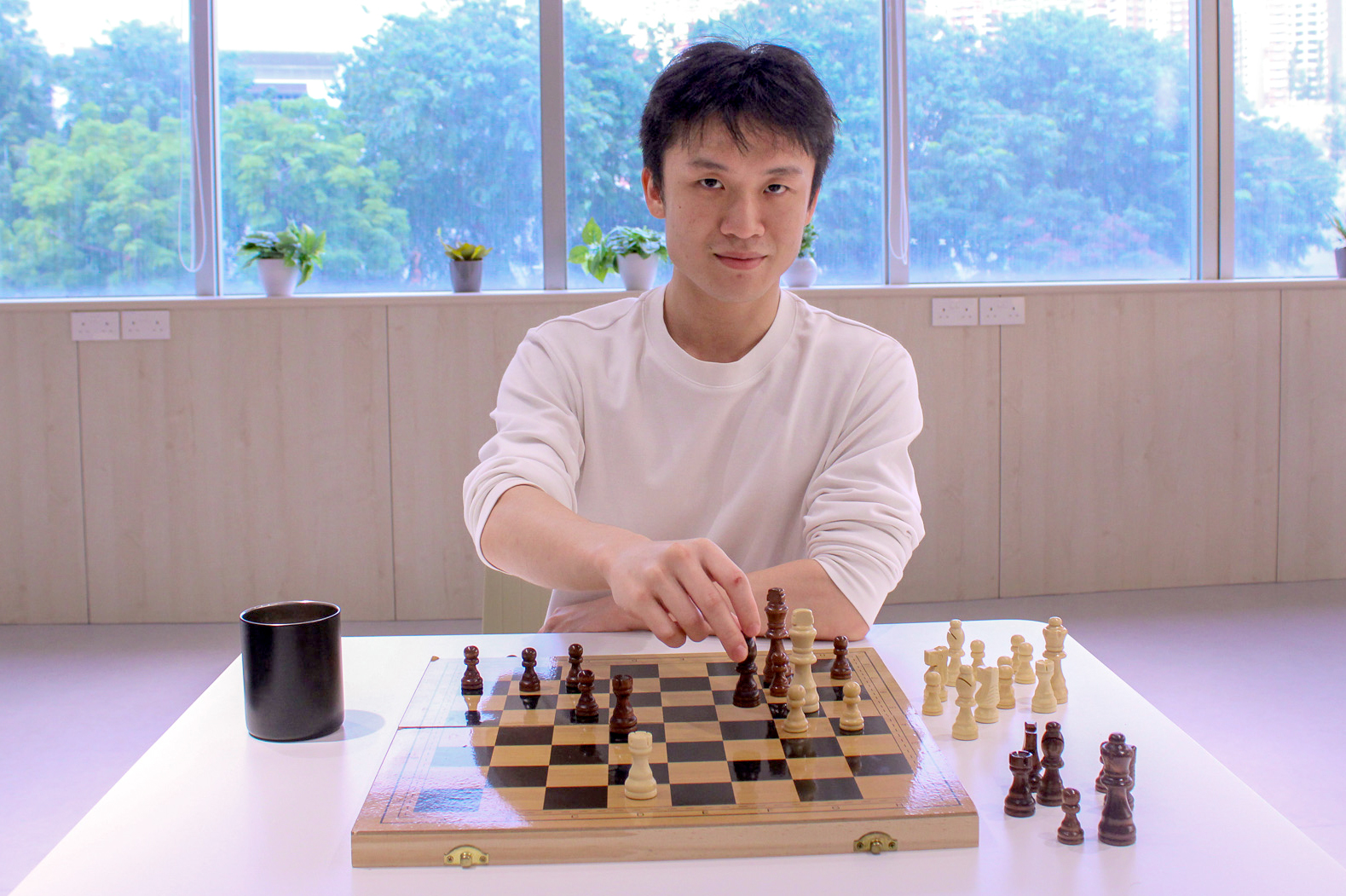
At DOTC, continuous learning and improvement drive meaningful change. This series showcases team members and their stories, highlighting their expertise and contributions in shaping our work.
We spoke with Foo Chi Fa, software engineer in
the Pinpoint team, about his learning journey from doing his own computer
vision research to interning at OGP (Open Government Products) and working
at DOTC. Passionate about mastering the art of chess, he shares his experiences,
insights, and occasional lighthearted reflections on engineering.
Chi Fa initially pursued a business course. But his strong interest in
digital technology led him to make the switch to study Computer Science
at NUS. Passionate about public service, he joined the SAF as an intelligence
officer before realising that his true interest lies in software engineering.
Therefore, he transitioned from being an intelligence officer to a Command
Control Communications Computers Expert (C4X) within the SAF, refined his
engineering skills during a 12-month attachment at OGP, and applied what
he had learnt when he returned to DOTC.
What is the most exciting feature you have ever built, and what made it special?
"One of the most exciting features I’ve worked on was building a waiting room using Cloudflare Workers on FormSG to support the balloting of National Day Parade tickets. It was crucial in ensuring that the product could handle sudden surges of between 10,000 to 200,000 active users while maintaining smooth performance. You can read more about it here.
Within DOTC, an interesting feature I’ve worked on is reverse image and semantic search in Pinpoint (a photo storage and search platform I helped build). The feature leverages an image-text multimodal foundational model to allow users to conduct search using either an image or semantic text, with the model mapping inputs to a latent space for comparison between images or between text and images. It’s designed to assist in quickly retrieving relevant images. We have successfully prototyped the feature and will be rolling out to users this year!"
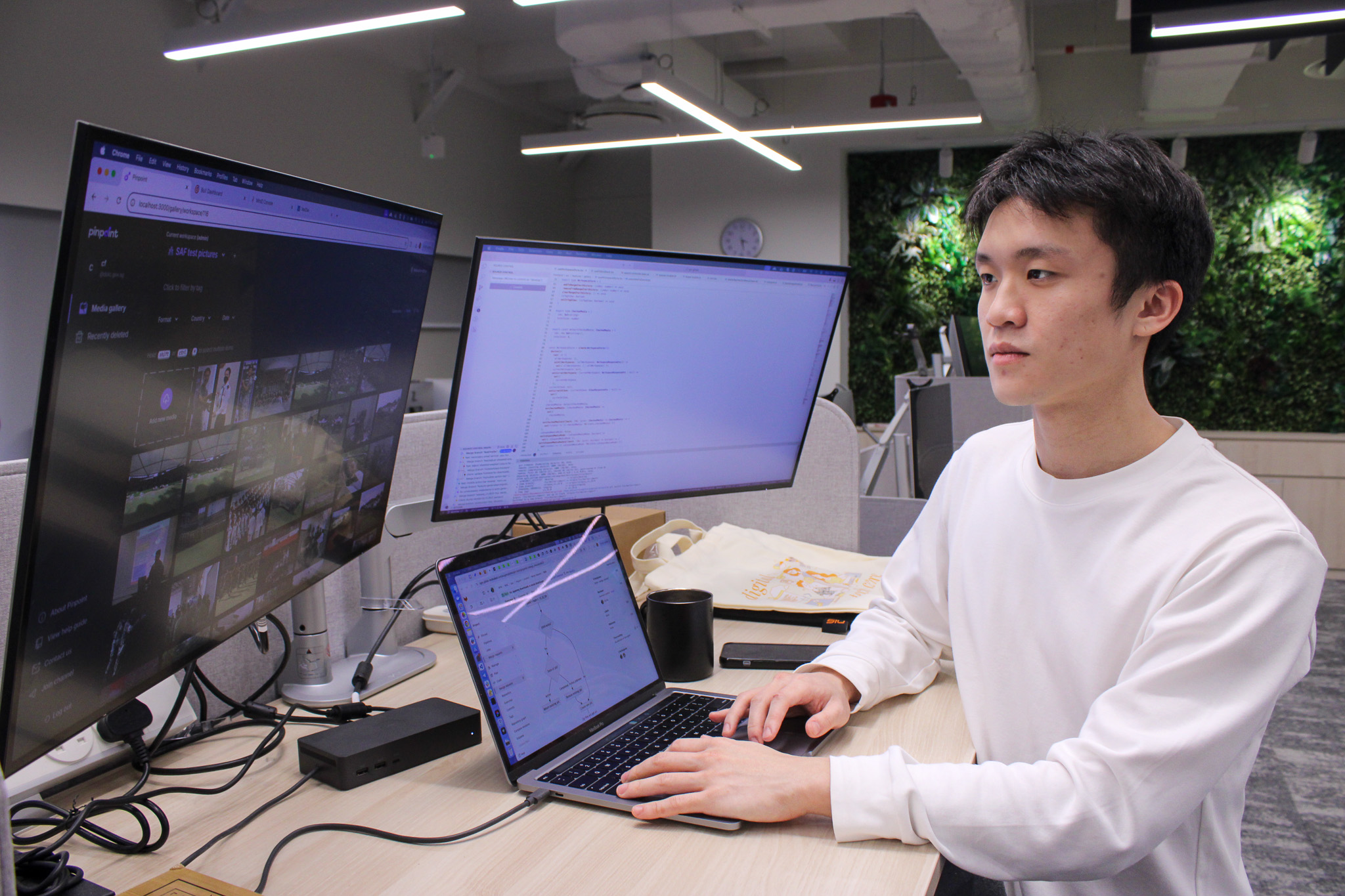
If you could streamline one task in your work to improve efficiency, what would it be and why?
"On-call duties. Every live product needs an on-call engineer, who serves as the first line of defense against app issues, service outages, and security vulnerabilities. It’s an important but mentally taxing role. A lot of incidents happen due to new releases introducing bugs or adjacent services facing issues that impact our app.
AI could potentially help by understanding our codebase and architecture, suggesting likely causes of incidents. A simple rollback button would also be great, as many bugs come from recent updates - being able to revert quickly would make life much easier."
When faced with a tricky bug, what’s your go-to move: coffee, a walk, or sheer determination?
"Shower. It hides my tears."
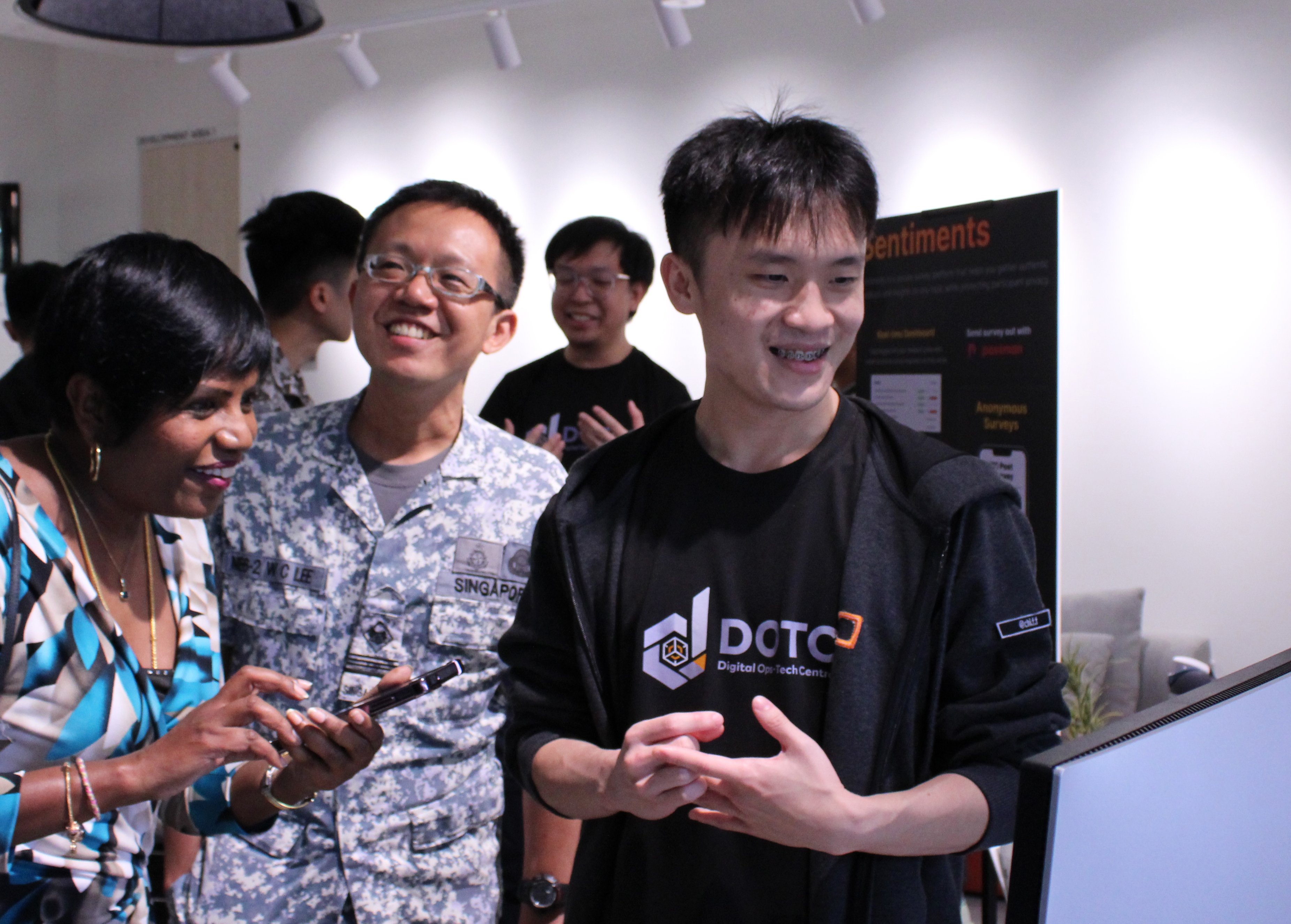
What’s the most memorable moment from your time at DOTC so far?
"Definitely the Hackathon. It was my first time using the T3 stack with Next.js and Tailwind CSS, and deploying to Vercel. The improvements in open-source tech for rapid prototyping were eye-opening.
The problem space was well-defined with motivated users, making development feel focused and fast-paced - it kept our cadence high and the experience fun. Plus, I got to experiment with creative features like a snake game using paper planes instead of a snake and a Telegram chatbot that provides inspiring quotes, paired with an AI that critiques them from the perspective of a Singapore government software engineer."
Describe your job in one sentence—but make it sound like a movie tagline!
"Digital Bob the Builder."
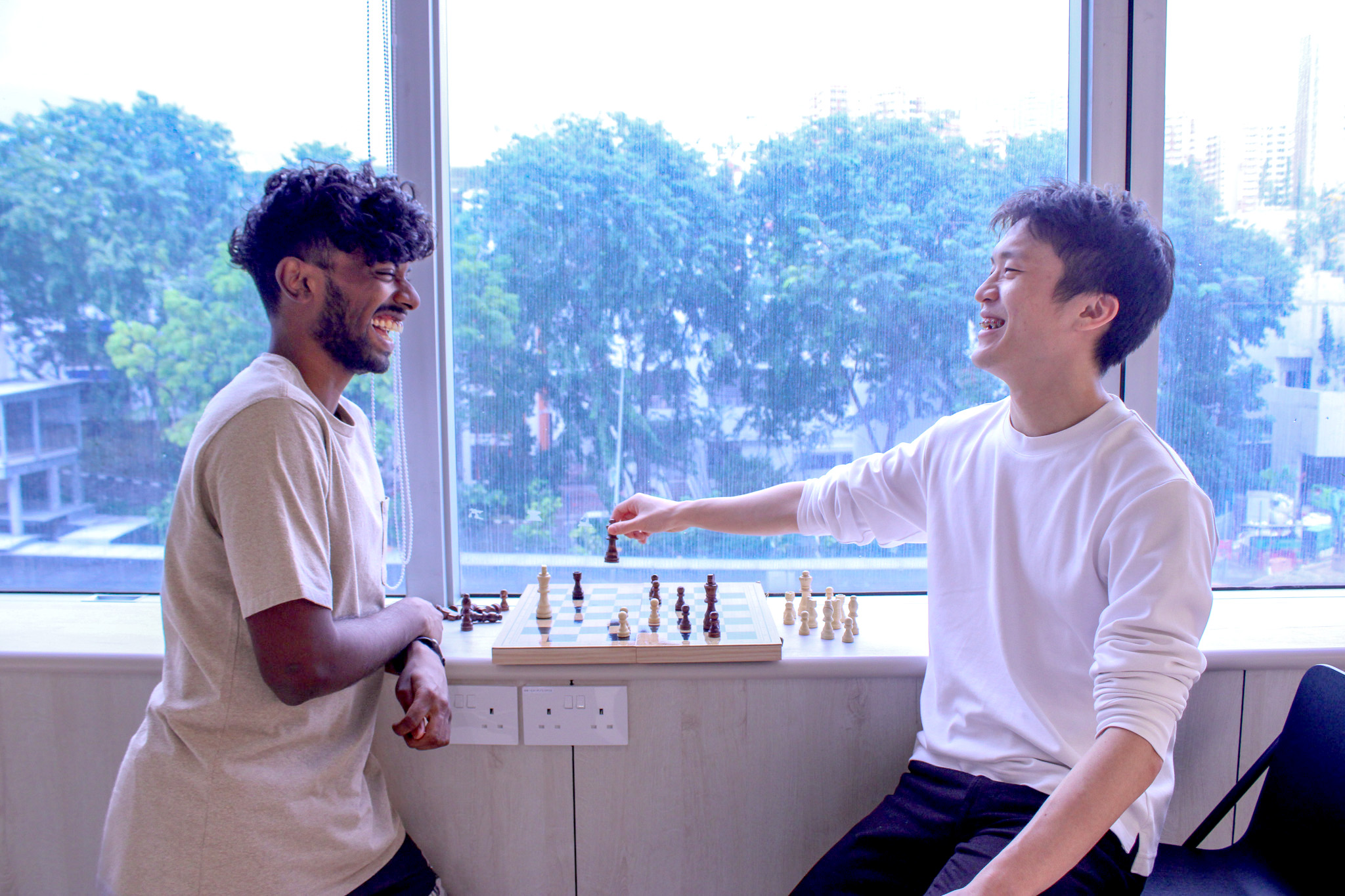
What’s the best advice you’d give someone aspiring to be a software engineer?
"Do pointless things. Build fun, seemingly ‘useless’ projects - it keeps you motivated and helps you learn new things. Some of my ‘pointless’ projects include adding snowfall/fireworks to Pinpoint that helped me appreciate event handling and CSS animations, as well as an AI quote reviewer on Telegram which taught me prompt engineering and integrating LLMs for real-time interactions.
The best way to grow as an engineer is to experiment and tinker without worrying about utility!"
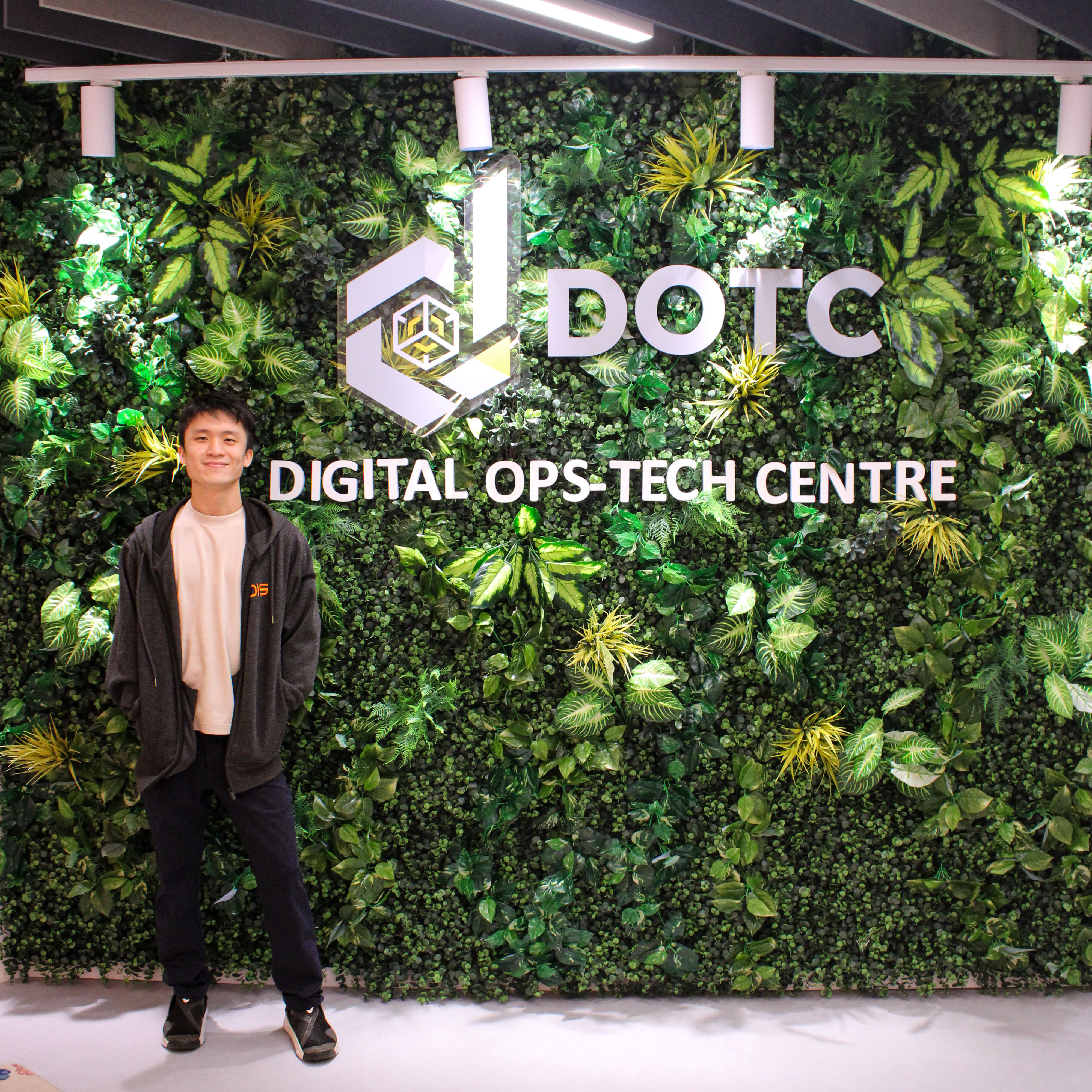
Chi Fa’s journey is a testament to the spirit of creativity and problem-solving that drives DOTC. Whether it’s crafting delightful user experiences, tackling tough technical challenges, or injecting a bit of humour into the daily grind, he embodies the innovative mindset that makes our work meaningful.
Interested in building the future with us? Join DOTC and be part of the change!

